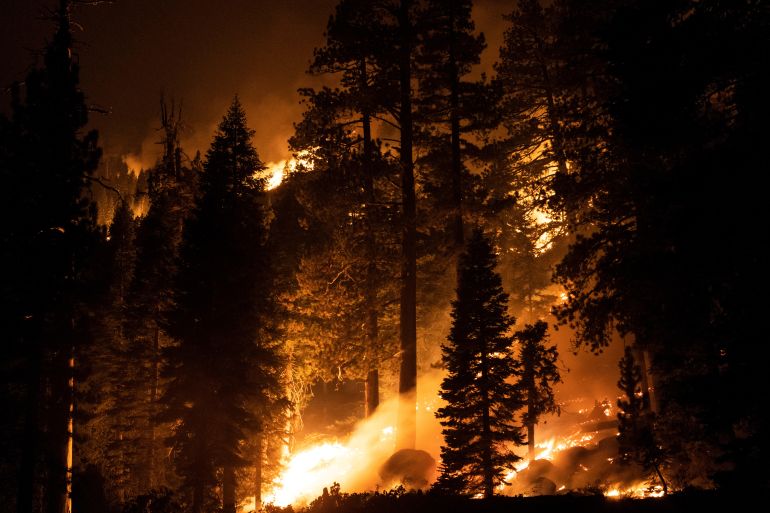G20 nations will face a full-frontal tide of climate impacts
And yet, their leaders continue to avoid making strong commitments on climate action.

The climate front lines are not just Tuvalu or the Maldives: they are Tokyo, Brussels, New York, and the world’s economic heartlands.
Therefore, it beggars belief that as the world comes together for the 2021 United Nations Climate Change Conference (COP26), its largest economies – which emit 80 percent of all greenhouse gases – continue to have such stilted and sluggish commitments to staving off climate risk. The reality is that all G20 nations face a full-frontal tide of climate impacts that will rip through their economies within 30 years.
These are the findings of the new “G20 Climate Impacts Atlas”, a study based on the most recent science.
Heatwaves, droughts, fires and floods will increase in severity and frequency, creating risk and instability for today’s G20 growth models.
Most G20 countries share one trait: long and densely populated coastlines, replete with vital infrastructure that will, over time, stand in the way of dangerous turbulence.
Alongside risks to coastal and major urban centres, agriculture and tourism also emerge as prime economic casualties across the G20, fundamentally threatening the supply of food and the livelihoods of millions. It can amount to GDP wipeouts equivalent of the economic toll of multiple COVID-19 pandemics.
In Australia, floods, hurricanes and rampant bushfires will raise insurance costs and strike several hundreds of billions of dollars from the property market by the mid-century. India – currently the fastest growing G20 economy – faces acute economic stress by 2050, with climate shocks leaving its millions of farmers significantly poorer, while up to 18 million people will face a permanent danger of river flooding, and heatwaves that last 25 times longer.
Heatwaves, in fact, emerge as a major stressor in all the G20 countries – they will last at least 10 times longer by 2050, and in the case of Argentina, Brazil and Indonesia, over 60 times longer.
From agriculture to construction, to health infrastructure for the elderly to disease prevention, not to mention the simple productivity impacts of severe temperatures, this upsurge in heatwaves stands to burn a hole through G20 economies and reduce GDP growth in a significant way.
The G20 can heed risk and pivot to their advantage. If they do not, they will let risk reign and see prospects for prosperity disintegrate before their eyes by 2050.
By 2050, our strained climate will cause ruinous shocks to the G20 at every turn. At a time when the pendulum of climate negotiations appears to have swung to competition over cooperation, it is important to recall a great breakthrough that was achieved when governments reached a deal on the Paris Agreement in 2015.
It was not only the 1.5C goal and the 2050 net-zero horizon. It was also the shift away from rigid treaty obligations to a global regime based on mutual self-interest, and the recognition that the price for inaction would be high.
The bottom lines are loss and damage. Our drifting status quo will damage millions of livelihoods in every G20 country; damage the planet as a whole; and damage economic prospects as the net-zero race rewrites the rules in favour of the first-movers.
The spirit of mutual self-interest enshrined in Paris required every government to find its own path. It is time for every G20 government to catch up to that promise, and deliver more ambitious goals at COP26 – especially more ambitious short-term goals.
Climate change is a unique problem and it requires unique and creative responses. Interpreting it as a usual transactional international dispute will not allow us to reach the degree of intent that we need and will also overlook the fact that every country has a stake in its solution.
It is really the self-interest of everybody to preserve the planet for our common good.
The window to act is closing. We only have a short time to sharply reorient our economies for the next few decades, or have them sharply reoriented for us by climate damage. It is time for the G20 to make its economic agenda a climate agenda.
The views expressed in this article are the authors’ own and do not necessarily reflect Al Jazeera’s editorial stance.